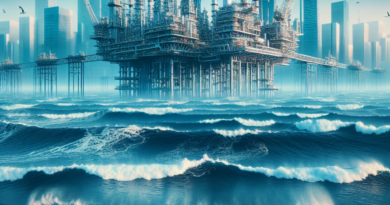How the EU Supports Russia More than Ukraine
EU Gas Imports from Russia Exceed Support to Ukraine, Report Reveals
As Ukraine seeks to consolidate its gains in the Russian region of Kursk, recent reports shed light on the current scope of European gas imports from Russia.
The issue gained significance as the Ukrainian army captured a gas metering station near the village of Sudzha, on the border between Russia and Ukraine.
The conquest of Sudzha is unlikely to disrupt gas flows to Europe, as the pipelines also traverse Ukrainian territory, which Kyiv could block at any time.
Moreover, the Wall Street Journal stated that Ukraine was behind the sabotage of the Nord Stream in September 2022.
The Nord Stream pipelines directly connected Russia and Germany, the main buyer of Russian gas in Europe.
Despite these events, European countries continue to purchase Russian gas and oil at a rate of billions of euros every month.
According to Euractiv, EU countries have paid 200 billion euros for Russian fossil fuels since the invasion began in February 2022.
This figure is lower than the 185 billion euros in direct support to Kyiv.
Oil and gas revenues are the main drivers of the Russian economy and a crucial source of support for their invasion.
European Efforts to Reduce Energy Dependence on Russia
“The political reality is that it is extremely challenging for European countries to fully diversify their energy supplies when many are already grappling with high inflation and a cost-of-living crisis,” said Armida van Rijd, a senior researcher at the Royal Institute of International Affairs in London.
Despite the significant purchases of Russian fossil fuels, the European Union has taken significant steps to reduce its energy dependence on the Kremlin.
In March 2022, EU countries paid 5.4 billion euros for Russian gas, down to 1.5 billion euros in March 2024.
Russia now provides 3% of European diesel and 5% of its oil, down from 50% and 25% in 2021, respectively.
Norway and the United States have replaced Russia as the main energy suppliers to the EU.
Imports from the US have led to an increase in purchases of liquefied natural gas (LNG).
While some countries like Italy, Romania, and Lithuania have effectively banned direct imports from Russia, they continue to receive Russian gas through third-party countries.
Many EU countries now import gas from Turkey and Azerbaijan, which in turn buy it from Russia.
“Russian gas is being recycled through Azerbaijan and Turkey to meet ongoing high European demand,” van Rijd stated.
In some cases, such as Austria, gas imports from Russia have even increased post-war.
It remains unclear if the European Union will ever manage to completely halt its imports of Russian fossil fuels.
Russia holds the world’s largest proven gas reserves and the eighth-largest oil reserves.
While the EU is swiftly moving towards a green transition, it will still take several years to complete.
For now, the European Union will continue to indirectly support the Russian war effort.




